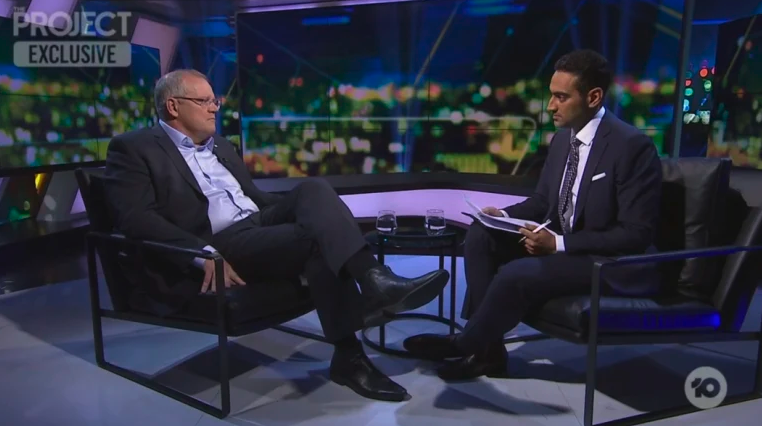The need to disagree better - Our Disconnected Australian Leaders.

Image Credit: TheAustralian.com.au
Connected Leaders, and the Need to Disagree Better
Australia is a democracy. It may not be a perfect democracy -- what is perfection, after all? -- but it is a democracy nonetheless. This may mean different things to different people, but, at its heart, democracy means conversing, listening, understanding, and reaching a consensus on the best course of action for society -- a consensus that represents the broader needs of all of our citizens.
And so, naturally, democracy involves disagreement. Often, democracy involves passionate, vehement disagreement on key issues. This cannot, and should not, be avoided, and this is why there was a grain of truth in the words of Prime Minister Scott Morrison when he told Network Ten's Waleed Aly of the need not to "agree more", but instead to "disagree better".
This need is part of our human psyche and is ingrained into us from a young age. We learn as youngsters about the importance of constructive criticism, and of putting our own opinions forward while respecting those held by others. Disagreement does not mean disparagement, just as agreement does not mean complete and total acquiescence to, or acceptance of, another standpoint. To disagree is natural, but it is the way that we disagree that is important.
So, when we look to our politicians -- surely the models for democratic debate and 'positive' disagreement in Australia -- what do we see? Well, it would be difficult to say that we see any examples of what the Right Honorable Mr Morrisson is talking about, even from himself. Instead, we see division, and we see stasis. In fact, we see very little positive forward motion at all.
Debate in modern Australian politics tends to run along familiar lines. One politician puts forward one view -- a view coloured by his or her own deeply held beliefs or prejudices -- and another puts forward an alternative view, usually in direct opposition to the initial point. The politicians then circle one another, rhetorically, saying the same things with a different combination of words and in a different structure, and returning to the same conclusions each and every time.
There are limitations and divisions in place -- limitations and divisions that are so robust and well developed that they are almost physical in their composition. The politicians in question are operating within a closed system, responding only to what they want to hear. There is no interaction in a true sense, the closed system is not broken or opened up in any way, and no progress is made.
The root cause of this is disconnection. In my last post, while discussing the tragic and horrendous events that took place in the mosque and Islamic centre in Christchurch, New Zealand back in March, I touched upon this point -- I touched upon the need for communication and conversation as we strive for a more connected, a more effectively functioning, society. And yet, when we hear politicians debate and discuss matters, either with interviewers on television, or with one another in parliament, we see no evidence that this is taking place.
Instead, we see disconnection -- disconnection not only from each other, but also from the very people they are supposed to represent. Too often, we hear politicians speaking, and we find our own voices -- our own interests and needs -- missing. Our elected representatives are not fostering this connection.
This is something we are looking to discuss at the Enablers program at Chain Reaction. It is vital that we break the cycle of disconnection and dissonance, and instead take steps towards fostering a more positive attitude towards communication, and even to disagreement, in our younger generation. It's a long road, but it must begin with a step in the right direction.
Margaret Bell, AM - Founder and CEO of Chain Reaction Foundation.
| Website | Donate to our Purple Heart Appeal | Contact Us | Purchase the Book |
